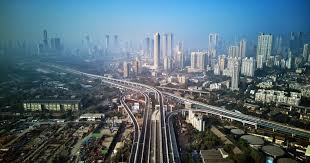


The Mumbai property market, the largest in India, has shown remarkable growth in May 2024, with property registrations witnessing a significant surge. Data from the Maharashtra government's website indicates that around 11,800 properties were registered in May alone, marking a 20% year-on-year increase and a 1% rise sequentially. This uptick in registrations also led to a substantial increase in stamp duty revenue, which grew by over 20%, surpassing ₹1,000 crore.
In the first five months of 2024, more than 60,600 units have been registered in Mumbai, reflecting a 16% increase from the previous year. This continuous growth underscores Mumbai's status as the country's premier real estate market. Knight Frank, a leading real estate consultancy, has highlighted a noticeable trend in the registration of houses, particularly in the 500-1000 square feet range. These accounted for over half of the registrations in May, up from 40% in April. Conversely, smaller apartments of up to 500 square feet saw their share drop from 45% in April to one-third in May. Larger homes, above 1,000 square feet, maintained a 15% share of the registrations.
Shishir Baijal, Chairman and Managing Director of Knight Frank India, attributes this continuous year-on-year growth to several factors. The State government's incentives have played a crucial role, alongside a steady rise in average property prices. Despite these price hikes, the momentum in sales and registrations has remained strong. Around 75% of the registered properties were located in Mumbai's central and western suburbs, indicating strong demand.
A deeper analysis reveals that over 70% of the buyers in May were from Generation X and millennials, with the latter slightly edging out with a 38% share. This demographic shift is indicative of changing buyer preferences and economic conditions. Dhaval Ajmera, Director at Ajmera Realty & Infra India, notes that the increased demand is driven by strong economic growth, enhanced purchasing power, and a recognition of real estate as a secure asset class. Additionally, the desire to upgrade to larger and better homes, coupled with significant infrastructural developments, has stimulated demand in new and emerging micro-markets across the city.
Conclusion
The Mumbai property market's robust performance in May 2024, characterized by a substantial increase in property registrations and stamp duty revenue, showcases the city's enduring appeal as a real estate hub. The growth is driven by a combination of government incentives, economic factors, and changing buyer preferences, ensuring that Mumbai remains at the forefront of India's real estate sector. With continued infrastructural advancements and a growing demand for diverse housing options, the future looks promising for Mumbai's property market.
News Articles
Other Real Estate News Articles